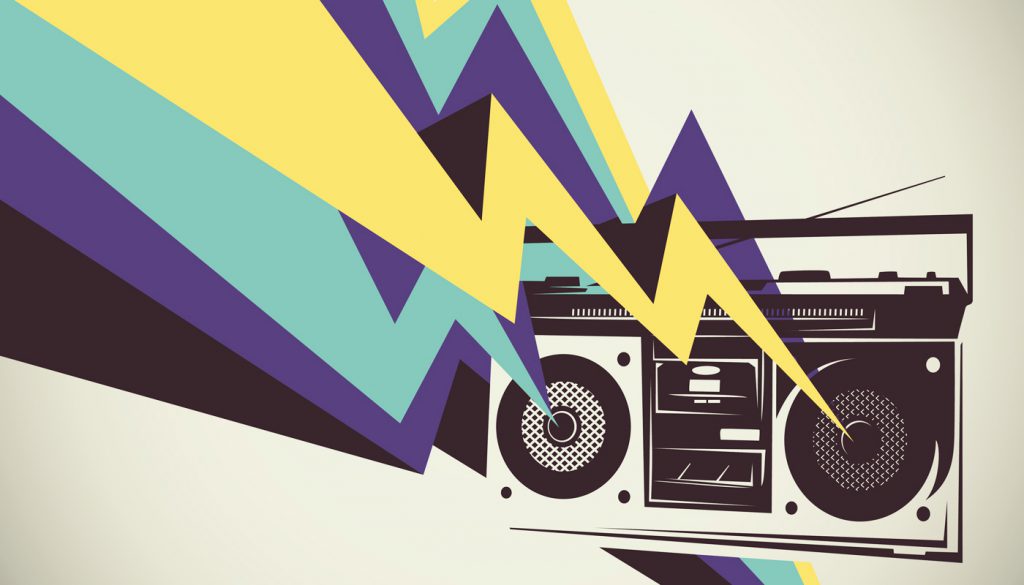The Right Music Can Bring Teams Together

Music is a common feature in many workplaces – from surgery suites to the mechanic’s shop. But when businesses play music, it’s typically to influence the mood of customers. Studies have shown that background music, even when we don’t notice it, can have an effect on our buying preferences. However, relatively little research has studied the impact of music on employee behavior.
In a new study, a team of Cornell University researchers found evidence that what we’re listening to at work might influence how willing we are to cooperate with coworkers.
“Based on results from two extended 20-round public goods experiments, we find that happy music significantly and positively influences cooperative behavior,” writes Kevin Kniffin and colleagues. “We also find a significant positive association between mood and cooperative behavior.”
Several previous studies have shown that when prompted with enjoyable music, people end up in a good mood. In a 2010 study published in Psychological Science, University of Western Ontario graduate student Ruby Nadler and colleagues found that participants who listened to snippets of upbeat music (such as Vivaldi’s “Spring”) outperformed those who listened neutral or sad music during a pattern recognition task.
To invoke a good mood in their experiment, Kniffin and colleagues selected peppy songs such as “Yellow Submarine” by the Beatles; “Walking on Sunshine” by Katrina and the Waves; “Brown Eyed Girl” by Van Morrison; and the theme song from “Happy Days.” The unhappy music playlist included a mix of songs from grindcore metal bands Attack Attack! and Iwrestledabearonce (some on Wikipedia argue that Iwrestledabearonce’s oeuvre should really be classified as punk mathcore).
For the first experiment, 78 college students were randomly assigned to listen to either “happy” music or “unhappy” music over an audio system while completing an economic cooperation task. Each student was seated at an individual computer station with a privacy hood while music was played over the room’s speakers.
During each round of the game, they had the option of allocating a portion of their own store of tokens, which represented small amounts of actual cash, to a shared pool with two other unknown players. Tokens added to the group pool were multiplied in value by 1.5, providing a strong incentive for cooperation.
Across 20 rounds of this game, the participants listening to happy music were found to be more cooperative, contributing more tokens to the shared pot compared to those listening to unhappy music.
In a second experiment, 188 participants were again randomly assigned to listen to either happy music or unhappy music, but this time the researchers also included a control group who did not listen to any music. Participants also completed a short mood assessment survey before, during, and after the experiment.
Again, the researchers “found significantly and persistently higher levels of cooperative behavior by participants who were played Happy music when compared with the other two conditions.”
The mood assessments showed that although mood was relatively consistent across the conditions at the very beginning of the experiment, mood declined for those listening to unhappy music compared to the control group. Essentially, pleasant music seemed to inspire a good mood which led to greater cooperation between teammates.
The researchers note that they did not account for potentially important variables, such as personality traits, that might moderate links among music, mood, and cooperation. Future research could also benefit from more naturalistic experiments, such as allowing participants to select their own music.
Music is an easy way to help boost employees’ mood on the job, which may ultimately help organization create a more positive and cooperative workplace. Choosing music everyone can enjoy may be the bigger challenge; while one person may prefer Mozart, someone else’s good mood inspiration may be Celine Dion or Nodes of Ranvier.
References
Kniffin, K. M., Yan, J., Wansink, B., & Schulze, W. D. (2016). The sound of cooperation: Musical influences on cooperative behavior. Journal of Organizational Behavior. doi: 10.1002/job.2128
Nadler, R. T., Rabi, R., & Minda, J. P. (2010). Better mood and better performance learning rule-described categories is enhanced by positive mood. Psychological Science, 21(12), 1770-1776. doi: 10.1177/0956797610387441





APS regularly opens certain online articles for discussion on our website. Effective February 2021, you must be a logged-in APS member to post comments. By posting a comment, you agree to our Community Guidelines and the display of your profile information, including your name and affiliation. Any opinions, findings, conclusions, or recommendations present in article comments are those of the writers and do not necessarily reflect the views of APS or the article’s author. For more information, please see our Community Guidelines.
Please login with your APS account to comment.